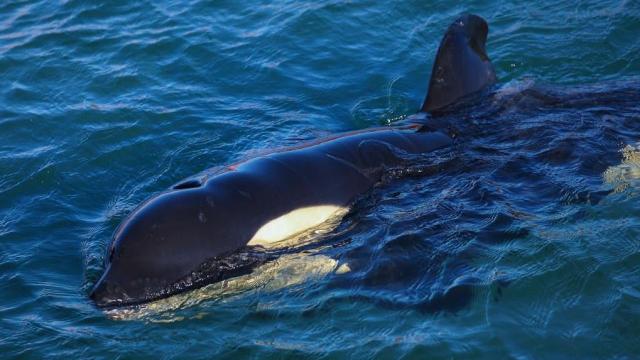Orcas are attacking and capsizing boats off the coast of Spain in what researchers are saying may be learned behaviour. The local maritime rescue service said on Thursday that several killer whales had damaged a sailing boat, adding to dozens of reported orca attacks off the coasts of Spain and Portugal this year.
A sailing boat was making headway to Gibraltar in the early hours of Thursday when a group of orcas pierced the boat’s hull and broke the rudder. A rapid-response vessel was deployed to assist the 20.12 m British vessel and towed it to the port of Barbate, in the province of Cadiz, for repairs.
Orca encounters have been increasing since 2020, leading researchers to question why the killer whale, which is a historically peaceful mammal, has suddenly begun attacking sailing vessels. But one researcher in Portugal thinks he may have the answer.
The attacks may have stemmed from an orca who scientists call White Gladis, when she experienced a “critical moment of agony” involving a boat, Alfredo López Fernandez, a marine biologist at the University of Aveiro in Portugal, told Live Science. “That traumatized orca is the one that started this behaviour of physical contact with the boat,” he said, adding, “The orcas are doing this on purpose.” But other researchers are not so sure.
Andrew W. Trites, a professor and director of Marine Mammal Research at the University of British Columbia told CBS News that he doesn’t believe the whales are retaliating. “I read that something triggered one of the adult females and she is exacting revenge and teaching the others to do that too by ramming vessels and trying to intentionally sink them,” he said. “To ram a vessel makes as much sense as me running full speed into a brick wall. You’re going to get injured.”
Last year alone, there were 207 reported interactions with Orcas according to the research group GTOA which also found there have been 20 interactions this month in the Strait of Gibraltar, where the British vessel was damaged on Thursday.
Monika Wieland Shields, a director of the Orca Behaviour Institute in Washington told NBC News, “I think it gets taken as aggression because it’s causing damage, but I don’t think we can say that the motivation is aggressive necessarily.”
Shields confirmed that orcas are generally gentle beings, not known for being aggressive toward humans, even when they were being attacked and placed in captivity. “They’ve certainly had reason to engage in that kind of behaviour,” she told the outlet. “There are places where they are shot at by fishermen, they’ve watched family members be taken from their groups into captivity in the ‘60s and ‘70s. And if something was going to motivate direct aggression, I would think something like that would have done it.”
While researchers continue to speculate about the mystifying change in the orca’s behaviour, the truth of the matter is that no one knows. “My idea, or what anyone would give you, is informed speculation,” Trites told CBS News. “It is a total mystery, unprecedented.”
